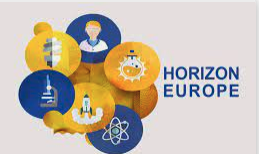

EQI part of successful Horizon Europe bid - REVERS-ED
EQI Directors Dr. Martin Brown and Prof Joe O'Hara are part of the consortium that successfully bid for the Horizon Europe project REVERS-ED- Trends on educational inequalities over time and successful interventions that contribute to reversing them
The project seeks to identify trends in educational inequalities across Europe and provide scientific evidence of effective interventions that compensate/reverse them over time, with an emphasis on transferability and sustainability
It makes a strong argument that research through the decades has demonstrated the existence and persistence of educational inequalities. These inequalities particularly affect vulnerable groups of students such as those with low socioeconomic status or a migratory history, who more frequently show high rates of early school leaving and low school performance across the EU. However, there is increasing scientific literature that identifies educational interventions that are effective in compensating for these inequalities, overcoming deterministic analyses in the understanding of the educational trajectories of vulnerable children and youth.
Taking this into account, this project will have a double approach. On the one hand, educational inequalities will be mapped and analysed from a longitudinal perspective, identifying key features and trends. On the other hand, the existing interventions that compensate for these inequalities will be studied in depth, with the aim of defining which are the conditions for their transferability and their wider implementation through policy.
Accordingly, the project will exploit the large volume of existing educational data at the national and regional levels. The project will select and analyse existing longitudinal data on primary and secondary education about educational outcomes, socioeconomic status, knowledge of the language of instruction, migration history, schooling received, or access to early schooling, among others. For the analysis, a retrospective cohort study will be conducted. Cohorts of children and youth in different European countries and regions will be selected and their educational records analysed to understand how educational inequalities have evolved in recent years and how they relate to characteristics of the education received.
The project will also include the longitudinal analysis (quantitative and qualitative) of the educational trajectories of children and young adults who have participated in successful educational interventions already identified by scientific research, to better understand how and to what extent they contribute to improving learning outcomes. The successful actions identified by the FP6 project INCLUD-ED (the only SSH research highlighted by the EC among the 10 success stories of the Framework Programme) have been already adopted in different member states and implemented in thousands of schools in
Europe and worldwide for the last 10 years. The long-term results of these interventions will be studied. With these analyses, this project aims to facilitate that effective interventions can be translated into policies and replicated to advance into more inclusive educational systems with better learning outcomes for all. Additionally, the project will allow a better knowledge of the type of data to collect and how to collect them, to be able to make informed decisions toward overcoming educational inequalities in the short, medium, and long term.
The project consortium is made up of partners from Spain, Ireland, Denmark, Lithuania, Belgium, Greece, Italy, Romania, Finland, Bulgaria and Portugal. It has a total budget of c. 2,5 million euro with an EQI budget of c. 250,000 euro.
The project will run until March 2027
